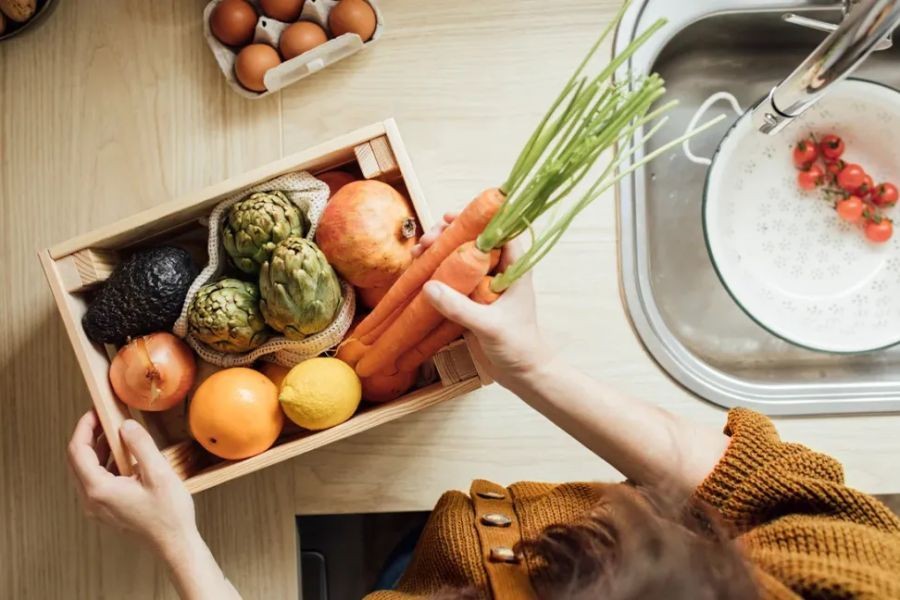In recent years, sustainability has become more than just a buzzword in New Zealand—it's a movement reshaping how Kiwis live, work, and eat. For tax specialists, understanding the nuances of sustainable practices is crucial, as it can impact everything from regulatory compliance to business innovations. As the climate crisis intensifies, New Zealand's agricultural sector—a cornerstone of its economy—faces both challenges and opportunities in adapting to more sustainable food practices. According to the Ministry for Primary Industries, agriculture contributes approximately 48% of New Zealand's greenhouse gas emissions, highlighting the urgent need for change. But how can individuals and businesses alike contribute to a more sustainable food system? Let's delve into the intricacies of sustainable eating in New Zealand, backed by data and real-world examples.
Understanding Sustainable Eating: A Deep Dive
Sustainable eating involves choosing foods that are healthful to our bodies and have minimal environmental impact. This means prioritizing local, seasonal produce, reducing meat and dairy consumption, and supporting regenerative agriculture. For New Zealand, a country renowned for its dairy and meat exports, shifting consumer habits could significantly influence both the domestic market and international trade dynamics. Stats NZ reports that the country's export earnings from the dairy sector alone were $20 billion in 2022, underscoring the economic stakes involved.
Real-World Case Study: Ooooby—A Kiwi Success Story
Problem: Founded in Auckland, Ooooby (Out Of Our Own Backyards) identified a gap in the market for local, organic food distribution. The challenge was to create a sustainable supply chain that connected small-scale farmers with consumers.
Action: Ooooby developed an innovative subscription box model, delivering fresh, local produce to customers' doorsteps. The company emphasized transparency, showcasing the journey of each product from farm to table.
Result: Within two years, Ooooby expanded its reach across New Zealand and into parts of Australia, reporting a 150% increase in subscriber growth and significantly boosting small farmers' earnings by up to 30%.
Takeaway: This case study demonstrates the power of sustainable business models in fostering community support and enhancing local economies. For tax specialists, it's a reminder of the potential tax incentives for supporting local, sustainable initiatives.
Data-Driven Analysis: The Impact of Sustainable Eating
According to the Reserve Bank of New Zealand, environmentally-friendly practices can enhance a brand's financial performance by up to 30% due to consumer demand for sustainable options. This is further supported by a 2023 report from the University of Otago, which found that 62% of New Zealand households are willing to pay more for sustainably-produced food.
From a tax perspective, embracing sustainability can also lead to potential tax credits and deductions. The New Zealand government has introduced various incentives to promote green practices, which businesses can leverage to offset costs and improve profitability.
Pros vs. Cons of Sustainable Eating
✅ Pros:
- Environmental Benefits: Reduces carbon footprint and promotes biodiversity.
- Healthier Lifestyle: Encourages consumption of fresh, unprocessed foods.
- Economic Gains: Supports local farmers and stimulates regional economies.
- Tax Incentives: Potential tax credits for businesses adopting sustainable practices.
❌ Cons:
- Higher Costs: Organic and local produce can be more expensive.
- Limited Availability: Seasonal variations may restrict food choices.
- Infrastructure Challenges: Requires investment in sustainable supply chains.
Debunking Myths: Sustainable Eating in New Zealand
Myth: "Sustainable eating means going vegan."
Reality: While reducing meat intake can lower environmental impact, sustainable eating focuses on balance and local sourcing rather than complete elimination of animal products. (Source: New Zealand Dietary Guidelines)
Myth: "Sustainable food is always more expensive."
Reality: With careful planning, local and seasonal foods can be cost-effective. Community-supported agriculture (CSA) models offer budget-friendly options. (Source: Consumer NZ)
Myth: "Sustainability is only for the wealthy."
Reality: Sustainable practices are accessible to all income levels, especially through initiatives like urban gardening and bulk buying. (Source: Massey University)
Future Trends & Predictions
By 2030, it's predicted that 50% of New Zealand's food businesses will adopt circular economy principles, minimizing waste and maximizing resource use. This shift is supported by the Ministry of Business, Innovation and Employment (MBIE), which forecasts a 20% increase in jobs within the sustainable food sector by 2028. Tax specialists should anticipate changes in regulatory frameworks and incentives to support this transition, potentially influencing tax planning strategies.
Common Mistakes & Pitfalls to Avoid
- ❌ Ignoring Seasonality: Failing to plan meals around seasonal produce can lead to higher costs and less nutritious food.
- ❌ Overlooking Labels: Not all "green" labels are created equal. Understanding certifications like BioGro can guide better food choices.
- ❌ Underestimating Waste: Failing to implement waste reduction strategies can negate other sustainability efforts.
Final Takeaways
- 📈 Embrace Local & Seasonal Foods: Supporting local agriculture can reduce carbon footprints and boost the economy.
- 💡 Explore Tax Incentives: Sustainable practices may qualify for tax benefits, offering financial advantages.
- 📊 Stay Informed: Understanding sustainability trends can guide better decision-making for both individuals and businesses.
What's your take on sustainable eating? Share your insights below and join the conversation on how we can collectively shape a greener future for New Zealand.
Related Search Queries:
- How to eat sustainably in New Zealand
- Sustainable food practices NZ
- New Zealand agriculture and sustainability
- Tax incentives for sustainable businesses NZ
- Local food suppliers in New Zealand
- Seasonal eating guide NZ
- Impact of agriculture on NZ economy
- Benefits of eating local produce NZ
For more insights and updates, subscribe to our newsletter to stay ahead of sustainable trends in New Zealand's economy.








































derumzugshelfer
1 month ago